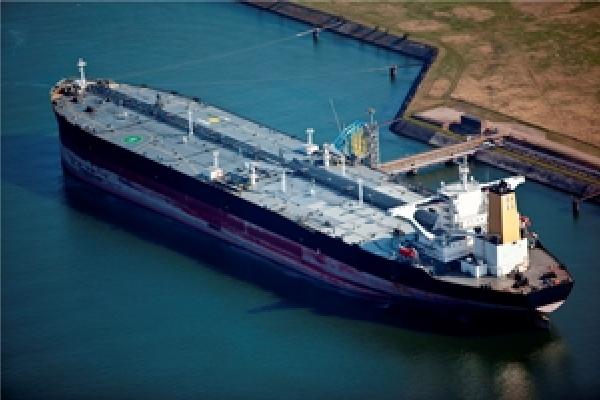
Sarah Nowak
Published: March 01, 2012

Glencore Energy (UK) Ltd v Sonol Israel Ltd (“The Team Anmaj”) [2011] EWHC 2756 (Comm)
The applicants in this matter were the buyers of a cargo of gasoil under two sale contracts, the cargo to be carried on The “Team Anmaj”. They were presented with a claim for demurrage by the cargo sellers, the respondents in this application.
The cargo sellers had purchased the cargo from BP on CIF terms. BP presented the demurrage claim to the sellers for delay at the discharge port when, following tender of the Notice of Readiness, no berth was available.
The sale contracts contained the following relevant provisions:
“Laytime allowed for discharging is 48 hours. Sundays and holidays included, pro rata for part cargo (if applicable).
Demurrage: As per charterparty rate, terms and conditions”
The charterparty to which the sale contracts referred provided:
“Demurrage US$26,000 pdpr
Laytime 84 hrs shinc”
That the demurrage claim was valid was not disputed. The question before the court was whether the claim was brought against the buyers within time. The starting point, therefore, was to establish when time started to run; when did the cause of action accrue?
If the claim was deemed to be established immediately on the expiration of laytime and accrued on a pro rata basis thereafter, the claim was brought against the buyers after the applicable 6 year limitation period and would be time barred. Whereas if the cause of action crystallised on presentation of the demurrage invoice by the seller to the buyer, the claim would be within time.
The question might also be put another way: was the demurrage claim an independent obligation under the sale contracts or was it a requirement to indemnify the seller against payment obligations received under the CIF contact?
The final “wrinkle” in the problem was that the laytime terms contained in the sale contracts and in the charterparty did not tally.
Counsel for the sellers attempted to persuade the Judge that the demurrage claim formed an indemnity action against the cargo buyers by arguing that it was a question of contractual construction and, as with all questions of construction, the factual matrix was relevant. It was stated that the terms “Laytime” and “Demurrage”, should not distract from the type of claim brought, namely an indemnity action against the buyers which was part of the terms of the sale contracts as a whole. Furthermore, the buyers’ obligation to settle such claims could not be an independent one because the buyers had no way of knowing the precise sums payable in demurrage until those sums had been presented to them, by way of an invoice, with all supporting documents – the presentation of a properly documented demurrage claim being a well-established principle. “Demurrage” was a label only, and the real obligation on the buyers was an underlying contractual one to indemnify the sellers for payments made up the chain.
The other element to support the position was that the second sale contract had not been concluded until after laytime had expired and it would therefore be “a nonsense to suggest that the claimant had accrued a cause of action for a breach of contract that had yet to be concluded”; and that while these circumstances were particular to the second sale contract only, both contracts contained the same terms and the court was therefore invited to conclude that identical terms in separate contracts had to be given the same meaning.
The cargo buyers relied on the “well established position that a demurrage claim is a claim for liquidated damages payable as a result of the improper detention or delay of the vessel” and there being nothing in the sale contracts to alter this position, the demurrage claim stood as an independent obligation which accrued at the expiration of laytime.
Furthermore, the fact of the inconsistency between the laytime provisions in the sale contracts and the charterparty must lead to the conclusion that the claim could not be treated as an indemnity action, citing Mance LJ in The “Devon” (Fal Oil Co Ltd v Petronas Trading Corporation Sdn Bhd (The “Devon”)(CA) [2004] EWCA Civ 822; [2004] 2 Lloyd’s Rep 282:.
“…as soon as one has a situation where the laytime provisions may not coincide, problems…arise about treating sale contract demurrage provisions as operating by way of indemnity in respect of charterparty liability.”
In the sale contracts, the laytime provision should be treated as a minimum discharging period which must elapse before demurrage might be payable.
In the event, the claim was struck out on the basis that it was an independent demurrage obligation, the cause of action had accrued on expiration of laytime and, in the circumstances, it was time barred.
Referring to the judgement given in The “Devon”, Beatson J considered the issue of conflicting terms in overlapping contracts and contractual construction and concluded that the authorities were clear that
“where a sale contract incorporates the terms of a charterparty relating to demurrage in an otherwise independent sale contract containing, for example, provisions about laytime, the obligation is generally to be construed as an independent demurrage obligation and not as an indemnity.”
Furthermore, for the purposes of commercial certainty, in the event that delay occurs the parties will know their position. The demurrage provision acts as a liquidated damages clause and the claimants’ argument that a party far removed from the underlying charterparty would not be able to quantify the claim for demurrage was dismissed since there was otherwise no mechanism for payment in the sale contracts, nor was there any provision that there must be a documented claim as a prerequisite to the accrual of a claim. In any event, if one were to consider giving commercial certainty to parties in these circumstances, the buyers were in no position to argue that the cause of action would accrue only when the demurrage invoice was presented to the defendant buyers since that would permit claimants to present a claim long after the discharge of the cargo - commercially a very unattractive situation.
The obligation to pay demurrage accrues on the expiration of laytime. It is therefore an independent obligation, not an indemnity under the sale contract. The limitation period within which the claimants must bring their claim therefore commences after laytime; the limitation period having expired, the claim was time barred.


